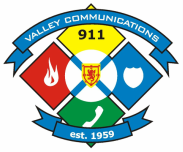FLOODING
Floods can occur at any time, and can cause significant damage to your home and property. Causes of flooding may include: sewer backups, leaks, broken water mains, torrential rainfalls, and sudden ice/snow thaws. Weather disasters (hurricanes/storm surges) can cause the water level to rise along the coastline. The risk of flooding is highest in spring due to heavy rains & winter thawing. Prepare for and stay safe during a flood. Here are some flood safety tips:
PREPARE:
ANTICIPATION:
DURING:
EVACUATION:
AFTER:
PREPARE:
- Build an emergency kit & make a family communications plan
- If feasible, construct barriers to stop floodwater from entering the building, seal walls in basements using waterproofing compounds & seal basement windows & ground level doors
- Keep important documents on higher levels to protect from flood damage
- Ensure you have flood insurance
- Avoid building your home in a floodplain unless you elevate & reinforce your home
- Elevate the furnace, water heater & electrical panel in your home if you live in an area that has a high flood risk
ANTICIPATION:
- Turn basement furnaces & gas valves off
- Safeguard heating equipment
- Move furniture, personal belongings & electrical appliances above ground level
- Get toxic substances away from flood area to prevent pollution
- Fill your bathtub(s) with water for flushing, washing & cleaning
- Set aside a supply of drinking water, in case your supply becomes contaminated
- Disconnect eaves troughs that drain into sewer
- Consider piling sandbags
- Put away anything outside belongings that could be swept away in a flood (ie. patio furniture, boats, etc.)
DURING:
- Stay aware of what roads are safe, where to go & what to do if you are asked to evacuate your home
- Listen to the radio or television for information & stay connected using social media for updates
EVACUATION:
- Secure your home, if your have time, bring in indoor furniture
- Drive with extreme caution if you are using a vehicle, do not drive into flooded areas
- Ensure you have enough gas in the tank
- If vehicle stalls, abandon it (many people have died after being caught by rising flood waters while attempting to move a stalled vehicle)
- Shut off electricity, basement furnace & gas valves
- Establish a family meeting place to ensure no one is lost or establish some system of communications in case of separation
- Avoid walking through moving flood water (six inches of moving water can make your fall), if your have to walk in water, make sure it is where water is not moving
- Do not stand or wade in water where contact has been made with electrical equipment
AFTER:
- Return home only when authorities have advised it is safe to do so, use local alerts & warning systems to get information & expect informed advice as soon as available
- Have an electrician clean, dry & test the main electrical panel
- Make sure building is structurally safe
- Look for buckled floors or walls
- Minimize contact with flood water
- Keep children away from contaminated water while cleaning
- Stay away from damaged areas
- Stay off of the roads & stay out of the way
- If you come across a barricade or a flooded road, go another way
